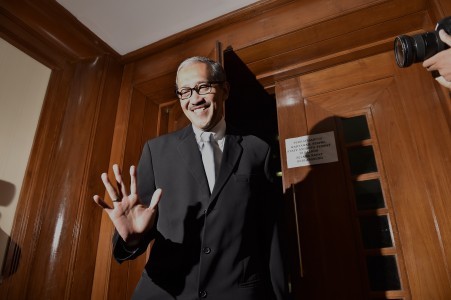Popular Reads
Top Results
Can't find what you're looking for?
View all search resultsPopular Reads
Top Results
Can't find what you're looking for?
View all search resultsNational movement needed to develop sharia economics: BI
Bank Indonesia (BI) deputy governor Dody Budi Waluyo says a national movement is needed to develop sharia economics to help develop and stabilize the economy.
Change text size
Gift Premium Articles
to Anyone
B
ank Indonesia (BI) deputy governor Dody Budi Waluyo has said a national movement was needed to develop sharia economics to help develop and stabilize the economy.
Dody said in Jakarta on Tuesday that national movements had been successful in developing sharia economics in other countries.
The other aspects in developing sharia economics included government support, the existence of a special body to coordinate with relevant institutions, improving the country’s competitiveness and the availability of a national strategy to develop sharia economics, including sharia finance.
“Sharia economics and sharia finance would not only support economic growth but also address economic problems like the current account deficit,” Dody said, as quoted by kompas.com, adding that sharia economics could make the country’s economy more resistance to global market instability.
The current account deficit was recorded at US$8 billion, or 3 percent of gross domestic product (GDP), in the second quarter, compared to $5.7 billion or 2.2 percent of GDP in the first quarter.
Dody explained that many countries where the population was not predominantly Muslim had successfully developed sharia economics.
However, Indonesia, the population of which is predominantly Muslim, was struggling to develop sharia economics and sharia finance. “In halal tourism, Indonesia still acts more like a customer rather than a producer,” he said in giving an example.
He said local sharia finance, for example, was limited to financing business. (bbn)










